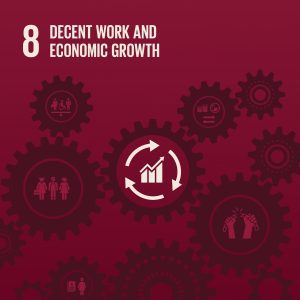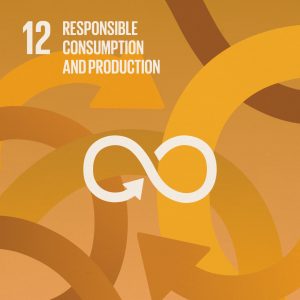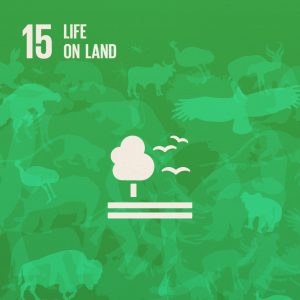by Camille Colter, Office of Sustainability
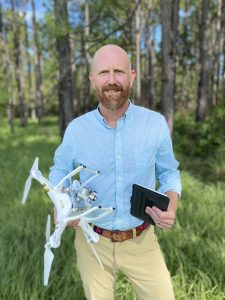 When you drink your cup of coffee in the morning, how often do you think about the process and labor involved? If the answer is not a lot or never, Beau Brodbeck wants you to rethink that.
When you drink your cup of coffee in the morning, how often do you think about the process and labor involved? If the answer is not a lot or never, Beau Brodbeck wants you to rethink that.
Beau has worked for Auburn University since 2005, when he was hired to administer an urban forest recovery program in the aftermath of hurricanes Ivan and Katrina. Currently, Beau works as an Extension Specialist in Urban Forestry based off-campus in Fairhope, Alabama. His areas of work include care and management of trees in urban landscapes & evaluating circular labor migration programs. His work in circular migration evaluates how participation in visa programs aimed at filling labor needs in forestry and agriculture impact the livelihoods of participating workers in Guatemala. This is important to Beau because he was born and raised in Guatemala on his family’s coffee farm, La Tranquilidad (tranquility).
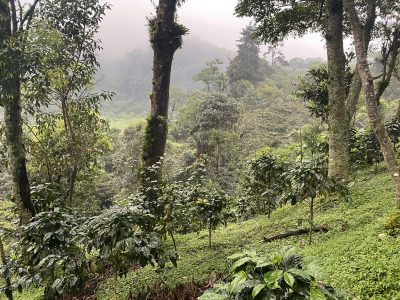
Café La Tranquilidad.
His parents purchased the family farm in the 1980s. The 10-acre farm is located on the pacific-facing mountains in Guatemala, “50 miles as the crow flies from the pacific ocean” on the slopes of an active volcano. Fortunately, the wind carries the ash-plumes in the opposing direction or “we could never grow coffee”. The farm is at an elevation of 5,000 feet in what is traditionally called “a Cloud Forest”. The conditions are extremely wet and humid, with a little over 200 inches of rain a year, producing one of Guatemala’s richest ecosystems.
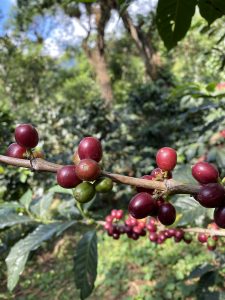
Coffee fruit at La Tranquilidad.
Due to the elevation, the coffee produced on the farm is strictly hard-bean, making it a higher quality coffee with a slower growth and production rate. The coffee is a shade-grown coffee, meaning coffee is grown in the understory, and an overstory comprised of native tropical trees is maintained. These trees provide habitats for a multitude of bird species, including motmots, toucanets, parikeets and the national bird of Guatemala, the Quetzal.
Sustainability is an important aspect of the operations of La Tranquilidad. His family strives to maintain native flora and fauna and limits the use of inputs like herbicides and fungicides. However, due to the intense and prolonged rainy season, they must use fungicides as fungal diseases can cause complete defoliation and crop failures. To help mitigate the need for fungicides, tree canopies are pruned just enough to allow sunlight and air movement to dry the understory and reduce fungal diseases. During the dry season, the trees rapidbly regrow to cover the plants and lockin the needed soil moisture.
A sustainable labor force is also a driving priority for this farm. They pay employees a livable wages, and some employees have been with the family since Beau was a child. “In many ways they are family” Beau said. Sustainability is also a part of his career. Beau strives to manage urban forests towards a safer, healthier and more resilient urban canopy and research how we can improve worker visa programs towards mutually beneficial relationships. In his free time, Beau is a avid cyclist and sailor. Both of these hobbies allow him to enjoy various aspects of the outdoors.
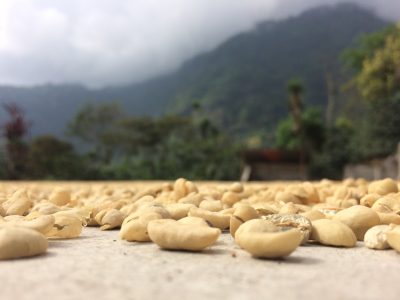
Drying of coffee beans.
Café La Tranquilidad just began a direct-to-customer model run out of Auburn by Beau’s brother, Christian Brodbeck. To do this, they import coffee that has been expertly roasted by a small shop they’ve used for decades in Guatemala. Previously, the farm sold green coffee on the open market , but had no control over where their product ended up. Scaling up their sales have been difficult as the global commodity price of coffee is low and La Tranquilidad is a small farm only producing 5,000 lbs a year. The key to their success is providing a high quality product that is sustainably grown from both an ecological and labor standpoint. The consumers’ purchasing power is crucial to providing small farms like this one the means to continue operations. There is more certainty that labor laws and good environmental practices are being followed when you support small and local businesses. If you want to learn more about La Tranquilidad, visit their website and follow them on Instagram and/or Facebook.
Learn about the SDGs & AU and our contributions related to this post.

